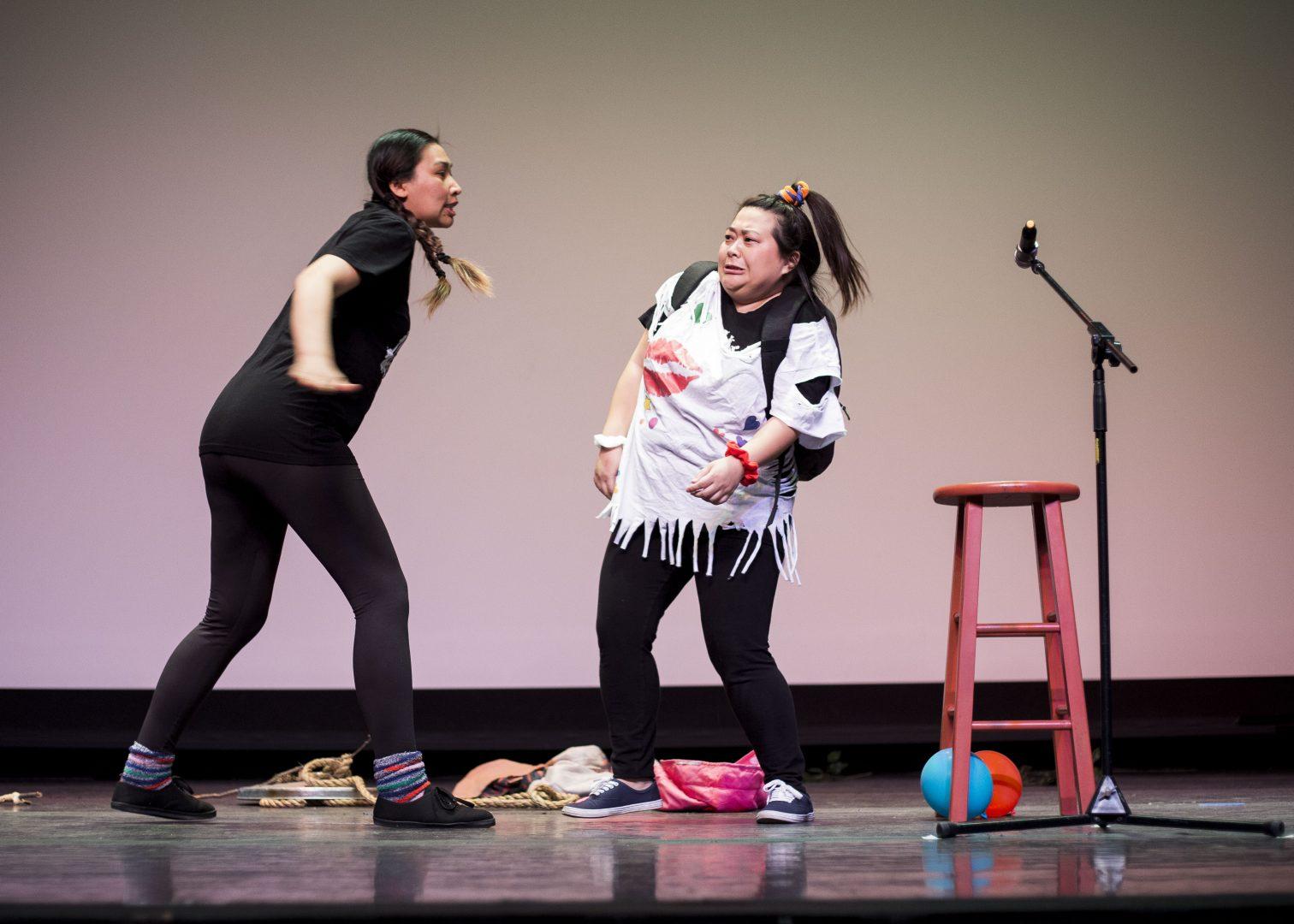The Funny Asian Women Kollective (FAWK) visited Fresno State on Saturday and Sunday for a weekend of comedy, theater and educating others on microaggressions.
Microaggressions are described as covert remarks with underlying implications that the remark is influenced by someone’s demographics, such as race or gender.
FAWK is a Minnesota-based group composed of three Asian-American women: May Lee Yang, Saymoukda Vongsay and Naomi Ko. Yang and Vongsay are both playwrights and poets. Ko is a writer and actress who has written for Warner Bros.
The group encourages Asian women to deconstruct stereotypes pertaining to them by being assertive and true to themselves. FAWK formed when Ko performed at a poetry reading and was asked to censor her material.
Ko was asked to avoid inappropriate topics and swear words. She said she felt that, as a result, she wasn’t allowed to perform to her fullest potential.
“Because she was censored, she wasn’t able to be her full self as an artist,” Vongsay said. “She wasn’t funny. She wasn’t witty.”
So, the three women created a space in which they could feel free to perform in the way they would like to.
“As Asian-American women artists, there are these assumptions on what kind of topics we should be talking about,” Vongsay said. “We are sick of people’s expectations of what Asian women artists should be.”
The members of FAWK explained that at times, people expect Asian women to be soft spoken and to restrict their speech in order to be perceived as more polite.
Gena Lew Gong, a Fresno State lecturer in the anthropology department, said she felt it was crucial to bring FAWK to Fresno State because the university’s Asian-American students don’t find many opportunities to attend events geared toward them.
“We thought that by bringing in a higher caliber of entertainment that’s also educational and empowering, that hopefully would raise the profile and hopefully get more students engaged on campus,” Lew Gong said.
On Saturday, FAWK hosted a clapback workshop in which they taught participants how to respond, or “clap back” to racial microaggressions in a confident manner.
The three women shared microaggressions they’ve faced. Yang explained that when she was in high school, a counselor attempted to place her in an “English as a second language class,” even though she was fluent in English.
Then, FAWK encouraged participants to write microaggressions they have heard on Post-it notes.
Some of the Post-its read: “Can I copy your homework because you seem smart” and “Wow, your English is good?”
Lew Gong feels that microaggressions often go unacknowledged because people don’t view them as a legitimate concerns. “A lot of young people hear these things on a daily basis, and at some point, it affects their self-esteem,” Lew Gong said.
Lew Gong says that part of why people continue to use microaggressions in conversation is because those who say them don’t view them as offensive.
“Sometimes, they’re not meant with any kind of ill will,” Lew Gong said. “People mean to be complimentary, but they do so in a way where you feel the racism behind their words.”
Jackie Rasaphone, a student coordinator for Asian and Pacific Islander programs and services for the Cross Cultural and Gender Center, said she liked that the workshop allowed her to hold conversations with those who have had similar experiences.
“[I like] knowing that I’m not the only person who has a problem dealing with microaggressions and it’s something that actually happens daily to everyone,” she said.
Later that day, FAWK performed a comedy show. Vongsay explained that the group uses humor to present material in a more palatable manner.
“Comedy allows us to navigate a lot of the discomforts that we feel,” Vongsay said. “It’s healing to laugh. You can’t be serious all the time.”
The next day, Yang and Vongsay performed their friendship play. The play centered on their companionship with each other as well as their cultures.
Vongsay is Lao, and Yang is Hmong. They modeled traditional clothing from Lao and Hmong cultures as well as shared stories of their upbringings.
Overall, FAWK fused laughter with insight to create a weekend in which Asian-Americans could find a sense of understanding and belonging.




